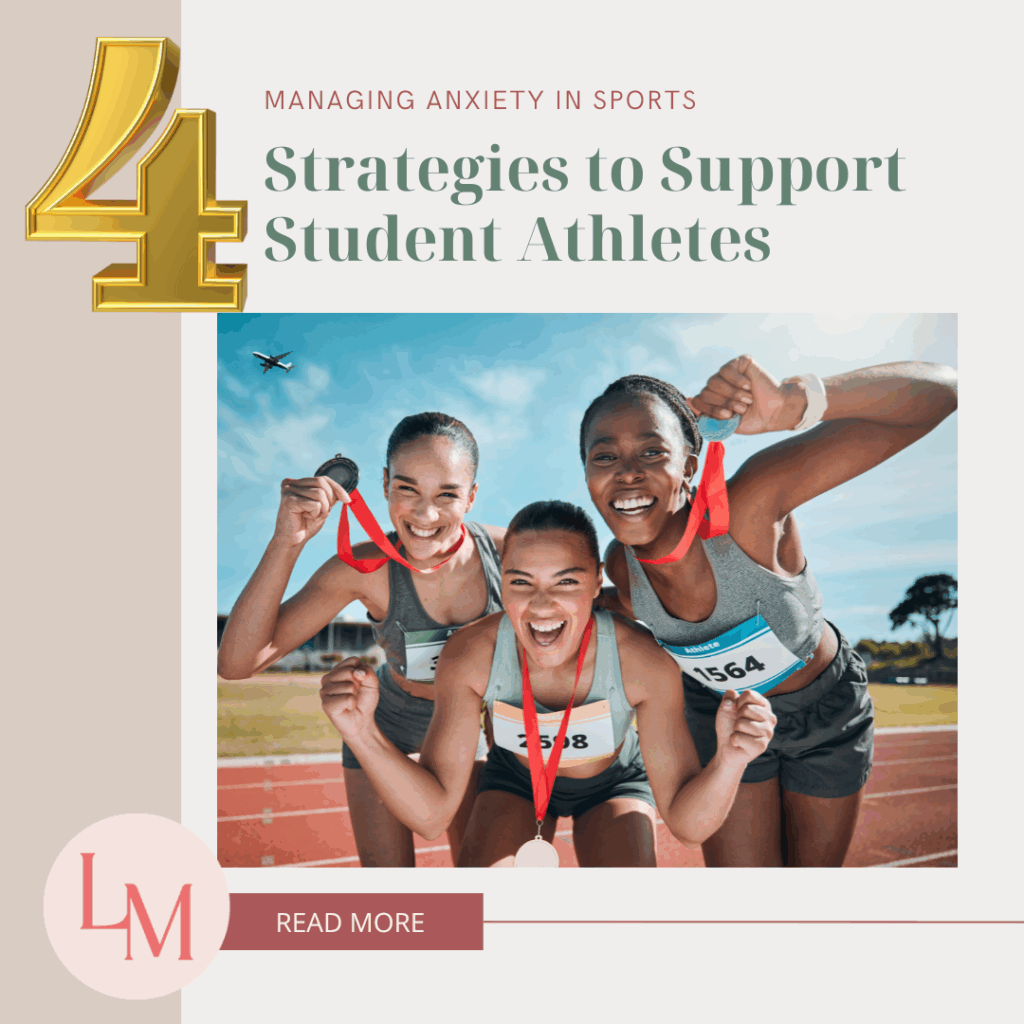
Managing Anxiety in Sports: Supporting Student-Athletes Through Competitive Pressure
Managing Anxiety in Sports: Supporting Student-Athletes Through Competitive Pressure
For student-athletes, sports are often a source of joy, growth, and accomplishment. Yet, as competition intensifies, so can anxiety, especially when high expectations come into play. Performance anxiety is common among young athletes, impacting both mental well-being and athletic performance. By learning strategies to manage sports-related anxiety, student-athletes can develop resilience, reduce stress, and perform with confidence.
Understanding Sports-Related Anxiety
Anxiety in competitive sports can manifest as racing thoughts, difficulty concentrating, muscle tension, and even physical symptoms like sweating or nausea. Sports psychologists note that performance anxiety often arises from a fear of failure or concern over others’ expectations (Smith et al., 2006). For student-athletes, the pressures of competition, scholarship goals, and self-imposed high standards can make anxiety feel overwhelming. Recognizing these symptoms as part of the experience is a first step toward managing them effectively.
1.Building a Resilient Mindset
Cultivating resilience allows athletes to handle setbacks and perform under pressure. Research by Dr. Carol Dweck on the “growth mindset” shows that believing in one’s ability to grow through challenges can improve resilience and reduce stress (Dweck, 2006). Encourage athletes to view mistakes as learning opportunities rather than failures. Practicing self-compassion also plays a role in resilience, reminding young athletes to treat themselves with the same kindness they would offer a teammate.
2. Incorporating Mindfulness in Training
Mindfulness can be particularly helpful in managing anxiety in sports. Techniques such as deep breathing, grounding exercises, or visualization can reduce stress and improve focus. Studies show that mindfulness training enhances athletic performance by keeping the mind centered and present, even in high-pressure situations (Kabat-Zinn, 1990). Student-athletes can benefit from practicing these techniques during training sessions so they become second nature during competitions.
3. Setting Personal Goals over External Expectations
While winning can be motivating, focusing too much on outcomes can heighten anxiety. Instead, encourage student-athletes to set personal goals that emphasize growth and progress, like improving a specific skill or building endurance. Research suggests that process-focused goals, rather than outcome-based goals, can lower stress and boost enjoyment (Smith & Smoll, 2013). Emphasizing personal goals helps athletes stay motivated, balanced, and connected to the love of the game.
4. Creating a Support Network
Support from coaches, parents, and peers is crucial for student-athletes managing performance anxiety. Coaches and parents can model a healthy approach to competition by praising effort, progress, and sportsmanship rather than just wins. Open conversations about anxiety can normalize the experience, giving athletes permission to seek support when needed.
Anxiety in competitive sports is common but manageable with the right tools and a strong support network. For student-athletes feeling overwhelmed by performance pressure, Living Mindfully, LLC offers virtual therapy services in Indiana, New Jersey, California, Delaware, Florida, and Arkansas. Our licensed therapists are here to provide guidance on managing sports-related anxiety and building a resilient, balanced mindset. Reach out to learn more about how we can support you or your student-athlete on the journey to mental well-being in sports.

Staci Vanzant
LCSW, NBC-HWC
